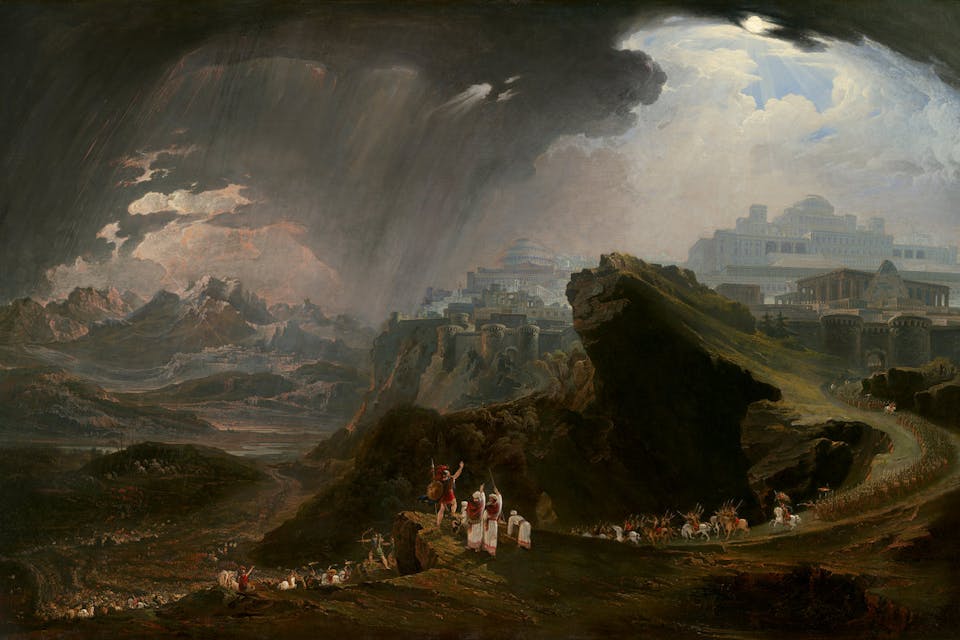
November 8, 2017
No, the Book of Joshua Does Not Tell of a Rare Solar Eclipse
Despite the claim of two recent scientific papers.
Some of you may have read about an article written by the British physicists Colin J. Humphreys and W. Graeme Waddington and published in the October issue of Astronomy & Geophysics. Titled “Solar Eclipse of 1207 BCE Helps to Date Pharaohs,” it’s an attempt to link the story of the sun’s miraculously standing still in the biblical book of Joshua to an ancient eclipse and to draw historical conclusions from the linkage.
I will get to the substance of Humphreys and Waddington’s thesis, which has received considerable press coverage, in a moment. First, though, I need to point to something that has gone mostly unremarked upon (an exception is a post by Professor James Davila in his blog PaleoJudaica), namely, that these researchers’ argument is practically identical to that of a much longer and more detailed paper published in January of this year, in the Hebrew journal Beyt Mikra, by three Israelis: the physicist Ḥezi Yitzḥak, the Bible scholar Daniel Vainstub, and the archeologist Uzi Avner. Such coincidences can happen in the world of scholarship and perhaps need not be made too much of, provided that credit goes to where it is due.
In any case, my remarks in this column will refer to both articles as though they were one. The relevant verses in Joshua 10:5-14 are, in the King James Version, as follows: